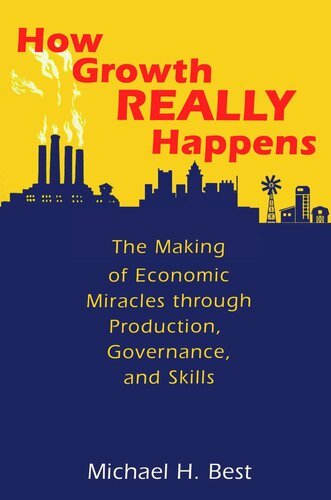

Most ebook files are in PDF format, so you can easily read them using various software such as Foxit Reader or directly on the Google Chrome browser.
Some ebook files are released by publishers in other formats such as .awz, .mobi, .epub, .fb2, etc. You may need to install specific software to read these formats on mobile/PC, such as Calibre.
Please read the tutorial at this link: https://ebookbell.com/faq
We offer FREE conversion to the popular formats you request; however, this may take some time. Therefore, right after payment, please email us, and we will try to provide the service as quickly as possible.
For some exceptional file formats or broken links (if any), please refrain from opening any disputes. Instead, email us first, and we will try to assist within a maximum of 6 hours.
EbookBell Team

5.0
110 reviewsA groundbreaking study that shows how countries can create innovative, production-based economies for the twenty-first century
Achieving economic growth is one of today's key challenges. In this groundbreaking book, Michael Best argues that to understand how successful growth happens we need an economic framework that focuses on production, governance, and skills.
This production-centric framework is the culmination of three simultaneous journeys. The first has been Best's visits to hundreds of factories worldwide, starting early as the son of a labor organizer and continuing through his work as an academic and industrial consultant. The second is a survey of two-hundred years of economic thought from Babbage to Krugman, with stops along the way for Marx, Marshall, Young, Penrose, Richardson, Schumpeter, Kuznets, Abramovitz, Keynes, and Jacobs. The third is a tour of historical episodes of successful and failed transformations, focusing sharply on three core elements—the production system, business organization, and skill formation—and their interconnections.
Best makes the case that government should create the institutional infrastructures needed to support these elements and their interconnections rather than subsidize individual enterprises. The power of Best's alternative framework is illustrated by case studies of transformative experiences previously regarded as economic "miracles": America's World War II industrial buildup, Germany's postwar recovery, Greater Boston's innovation system, Ireland's tech-sector boom, and the rise of the Asian Tigers and China.
Accessible and engaging, How Growth Really Happens is required reading for anyone who wants to advance today's crucial debates about industrial policy, free trade, outsourcing, and the future of work.